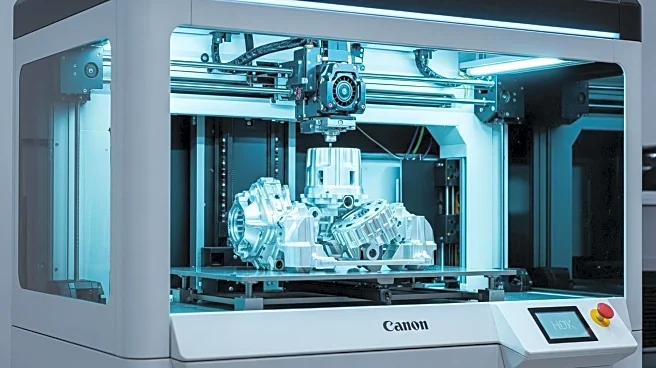What's Happening?
RTX, an aerospace and defense company, has partnered with Velo3D and the Raytheon Technologies Research Center to advance additive manufacturing processes for defense applications. This collaboration is part of RTX's strategy to expand its capabilities in the defense sector through technological investments. The partnership aligns with modern defense priorities and has positively impacted RTX's financial performance, contributing to an 18% increase in share price during the quarter. RTX's strong financial results, including a rise in net income and increased revenues, have been supported by product innovations and stronger dividends.
Why It's Important?
The collaboration between RTX and Velo3D is significant for the defense industry, as it enhances RTX's technological capabilities and positions the company to capitalize on defense spending increases. This partnership may improve RTX's revenue and earnings over time, solidifying its position in the competitive aerospace and defense landscape. The company's robust performance, with a total shareholder return of 189.79% over the past five years, highlights its ability to leverage both defense and commercial aerospace demand. Analyst forecasts predict annual revenue growth of 5.3%, with earnings projected to reach US$9 billion by 2028.
What's Next?
The partnership with Velo3D could further bolster RTX's growth projections, although risks such as tariff volatility and defense budget dependencies remain. With the current share price at US$156.27 and an analyst price target of US$162.5, RTX appears fairly priced, indicating limited potential upside unless new dynamics significantly alter growth projections or risk factors. The collaboration may lead to new contracts and improved margins, enhancing RTX's competitive edge in the defense sector.
Beyond the Headlines
The partnership reflects a broader trend in the defense industry towards adopting cutting-edge technology to improve efficiency and capabilities. This move may trigger long-term shifts in how defense companies approach manufacturing processes, potentially leading to more sustainable and cost-effective solutions.










